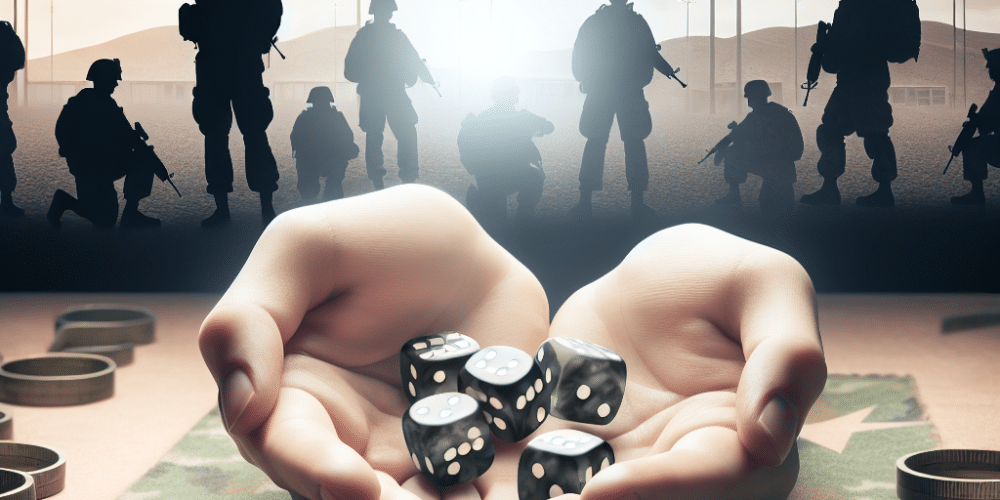The Kindbridge Research Institute (KRI) has unveiled a groundbreaking initiative in Colorado aimed at reducing the harm caused by gambling within the military community in the United States. This initiative, named Stigma Stand Down, targets active military members and their families to build resilience against gambling-related issues.
The problem of gambling among military personnel is significant, as studies indicate that gambling disorders are 3.5 times more prevalent in the military than in the civilian population. This statistic underscores a pressing need for targeted intervention and resources. On military bases worldwide, the presence of slot machines is common, and many service members find themselves developing compulsive gambling habits. Once developed, these habits are difficult to escape, especially during deployments where options for relief are limited.
Addressing this issue, the Kindbridge initiative also extends its support to veterans and military families. It acknowledges that compulsive gambling can strain family relationships, making recovery even more challenging. By involving family members in the recovery process, the institute believes it can enhance the success rates of treatment programs.
“Stigma is a silent enemy,” the Kindbridge Research Institute remarked in a statement, emphasizing how stigma isolates service members and veterans, affecting their families, units, and mission readiness. The timing of Stigma Stand Down’s launch aligns with the start of the football season, a period known for increased betting activity due to the abundance of advertisements and promotions.
Mark Lucia, director of programming at Kindbridge, noted that the influx of betting opportunities during this season could tempt problem gamblers. The institute’s proactive approach aims to mitigate this risk by offering support when it is most needed.
In collaboration with Kindbridge Behavioral Health, the institute provides free therapy sessions to at-risk and compulsive gamblers, including both military personnel and their families. This commitment to accessible mental health care is crucial in addressing gambling addiction within the military community.
To further support the initiative, the Kindbridge Behavioral Institute has introduced the Gambling Self-Check tool. This tool allows individuals to assess their level of addiction through a quick survey, enabling the collection of valuable data and the issuing of effective recommendations.
Lucia emphasized the importance of the initiative by stating, “Stigma Stand Down is our frontline response: dismantling shame and delivering free, confidential, evidence-based care designed for military realities. We thank our partners for standing with us and call on more allies to help transform lives and build stronger communities.”
Despite Kindbridge’s efforts, the military itself must take a more active role in addressing gambling issues among its ranks. The widespread availability of gambling opportunities on military bases suggests a need for policy changes and increased awareness of the risks associated with gambling.
Some might argue that gambling serves as a form of entertainment and relaxation for service members during their downtime. However, the potential for addiction and the subsequent negative impact on military readiness and family life cannot be overlooked. Critics of the current approach might suggest that the military should implement stricter regulations on gambling activities within its bases, thereby reducing the temptation and availability of such distractions.
Furthermore, by fostering partnerships with organizations like Kindbridge, the military could enhance its support systems for those struggling with gambling addiction. These collaborations could provide additional resources and tailored programs to better address the unique challenges faced by military personnel.
Overall, the Kindbridge Research Institute’s initiative represents a significant step toward addressing the pervasive issue of gambling within the military. By focusing on prevention, education, and support, Stigma Stand Down aims to not only assist those affected by gambling addiction but also to foster a healthier and more resilient military community. As the conversation around gambling and its impact on the military continues to evolve, it remains imperative for all stakeholders, including the military, mental health professionals, and advocacy groups, to work together in creating comprehensive solutions that prioritize the well-being of service members and their families.

















